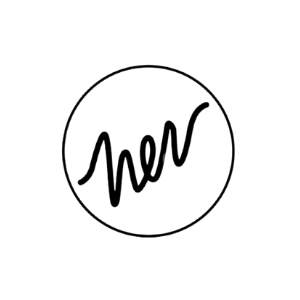Less sexy than festive gourd or pumpkin-spice latte season, fall is also OPEN ENROLLMENT season. That means many of you have the option RIGHT NOW to change your benefits with your employer. Here are three things for you to check this week to make sure you’re set up for success this year.

Three Things to Check During Open Enrollment
Short-Term and Long-Term Disability: Do you have short-term and long-term disability? If you couldn’t work for six months, what would your plan be to replace your income and cover medical bills? If you’re thinking about having a baby, look into short-term disability NOW. Once you’re pregnant you may not be able to sign up.
Life Insurance: Did you have kids this year? Are you pregnant? You may want to up your life insurance. If you are a parent, do you have enough life insurance to make sure your partner or your child’s caregiver could afford your mortgage or rent without your income? Would you want to leave enough to take your child through college? More on how much you may need here.
Health Insurance: Has your health situation changed from last year? Having kids getting sick or a new job may mean you’ need to reevaluate the tradeoff between lower monthly premiums and higher deductibles. Do you know about Health Savings Account and are you eligible? Have you built this into your decision around which health insurance to select? Read more below if you have questions on HSAs.
What’s a Health Savings Account: For people who have a High-Deductible Health Savings plan (aka your deductible is more than $1,400 for individuals and $2,800 for families), the government let’s you pay for qualified health expenses with money that is not taxed (think of it like a 401K for your health expenses). That means your root canal, your birth control, your prenatal ultrasound, your prescription retinol – can ALL be paid with pre-tax dollars. In 2022, the federal limits for an individual are $3,650 and for a family are $7,300.
How can you tell if you are eligible for an HSA?
1. Check your deductible – if it’s more than $1,400 for an individual and $2,800 for a family, you may be eligible for an HSA
2. See if your insurance plan says it’s HSA eligible. If you’re not sure ask HR or call the benefits hotline.
If you’re in your 20s or 30s and have relatively low medical costs, it can make a lot of sense to have a high-deductible plan. I used to opt for one before I had a kid. I also knew I could afford to pay the deductible without going into debt. If you have a chronic illness, are pregnant or parent little kids (petri dishes!), it may make sense to pay a higher monthly premium for a low deductible plan in which case the below isn’t relevant to you.
Pros & Cons of an HSA
Pros of an HSA
– You can reduce your tax bill: The $3,650 you can contribute to an HSA as a single person or $7,300 you can contribute as a family is tax free. If you’re married making over $171K, that means your marginal tax rate is 24% and $7,300 in tax-free income would save you $1750 in taxes each year. You can check (and purchase) if something is eligible for HSA dollars on this site. You can buy products directly here. It is more expensive than Amazon on some products (like Neutrogena sunscreen) but comparable or with more selection on some things like breast pump.
– The funds don’t expire (like an FSA) and your HSA can be used as another retirement account. If you’re in the position to max out your 401K ($20,500 / year in savings), this is a GREAT way to save more while reducing your tax bill. If you can afford to not spend the money in your HSA, you can set the money and leave it to grow. Plus, as long as you save the receipts from your medical bills (e.g., that gum surgery from not flossing), you can take that money out penalty free if you do need it before retirement. HSAs have three tax benefits: you pay no taxes now, the investment earnings grow tax free, and you pay no taxes when you remove the money. For example, if you have put $3,650 in your HSA next year and you have a $1,000 out-of-pocket expense for allergy shots, you can save that receipt and let the money in your HSA grow tax free. In three years if you need to touch the money in your HSA, as long as you have the receipt for the $1,000 allergy shots, you can remove that money without a penalty.
– You’re not required to take out a minimum withdrawal from your HSA once you hit 65. Unlike most 401K accounts that require you take a contribution at 65, your HSA is more flexible. This doesn’t seem important now, but as you get closer to retirement, this will matter. Imagine you are still very healthy at 65 and don’t need the money, but will need skilled nursing at 95 and will need the money.
Cons of an HSA
– Parents: this might not be for you if you’re looking to cover child care expenses. Flexible spending accounts NOT HSAs allow you to pay for child care. The rules here are a bit complicated, but some employers provide a Dependent-Care Flexible Spending Account AND an HSA.
– You have to have a high-deductible plan. If you have higher annual healthcare costs e.g., because you have a chronic illness or children, having a high-deductible plan just might not make sense for you.
– If you withdraw the money before 65, you will pay a 20% penalty.
– You cannot rely just on your HSA for retirement. Saving $3,650 / year as a single person and $7,300 as a family likely won’t be enough. Make sure you’re investing in a 401K and / or an IRA as well to set your future self up for success.

